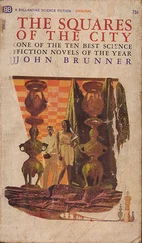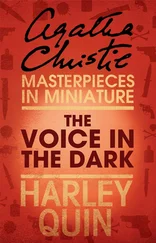O'Henry - The Voice of the City
Здесь есть возможность читать онлайн «O'Henry - The Voice of the City» весь текст электронной книги совершенно бесплатно (целиком полную версию без сокращений). В некоторых случаях можно слушать аудио, скачать через торрент в формате fb2 и присутствует краткое содержание. Жанр: Классическая проза, Юмористическая проза, на английском языке. Описание произведения, (предисловие) а так же отзывы посетителей доступны на портале библиотеки ЛибКат.
- Название:The Voice of the City
- Автор:
- Жанр:
- Год:неизвестен
- ISBN:нет данных
- Рейтинг книги:5 / 5. Голосов: 1
-
Избранное:Добавить в избранное
- Отзывы:
-
Ваша оценка:
- 100
- 1
- 2
- 3
- 4
- 5
The Voice of the City: краткое содержание, описание и аннотация
Предлагаем к чтению аннотацию, описание, краткое содержание или предисловие (зависит от того, что написал сам автор книги «The Voice of the City»). Если вы не нашли необходимую информацию о книге — напишите в комментариях, мы постараемся отыскать её.
The Voice of the City — читать онлайн бесплатно полную книгу (весь текст) целиком
Ниже представлен текст книги, разбитый по страницам. Система сохранения места последней прочитанной страницы, позволяет с удобством читать онлайн бесплатно книгу «The Voice of the City», без необходимости каждый раз заново искать на чём Вы остановились. Поставьте закладку, и сможете в любой момент перейти на страницу, на которой закончили чтение.
Интервал:
Закладка:
"'Who are these people on the side of the bill?' asks the man.
"'Sure,' says I, 'none others than the tenants of the Beersheba Flats -a fine home for any man, especially on hot nights. May daylight come soon!'
"'They come here be night,' says be, 'and breathe in the pure air and the fragrance of the flowers and trees. They do that,' says be, 'coming every night from the burning beat of dwellings of brick and stone.'
"'And wood,' says I. 'And marble and plaster and iron.'
"'The matter will be attended to at once,' says the man, putting up his book.
"'Are ye the Park Commissioner?' I asks.
"'I own the Beersheba Flats,' says he. 'God bless the grass and the trees that give extra benefits to a man's tenants. The rents shall be raised fifteen per cent. to-morrow. Good-night,' says he."
THE EASTER OF THE SOUL
It is hardly likely that a goddess may die. Then Eastre, the old Saxon goddess of spring, must be laughing in her muslin sleeve at people who believe that Easter, her namesake, exists only along certain strips of Fifth Avenue pavement after church service.
Aye! It belongs to the world. The ptarmigan in Chilkoot Pass discards his winter white feathers for brown; the Patagonian Beau Brummell oils his chignon and clubs him another sweetheart to drag to his skull-strewn flat. And down in Chrystie Street --
Mr. "Tiger" McQuirk arose with a feeling of disquiet that be did not understand. With a practised foot be rolled three of his younger brothers like logs out of his way as they lay sleeping on the floor. Before a foot-square looking glass hung by the window he stood and shaved himself. If that may seem to you a task too slight to be thus impressively chronicled, I bear with you; you do not know of the areas to be accomplished in traversing the cheek and chin of Mr. McQuirk.
McQuirk, senior, had gone to work long before. The big son of the house was idle. He was a marblecutter, and the marble-cutters were out on a strike.
"What ails ye?" asked his mother, looking at him curiously; "are ye not feeling well the morning, maybe now?"
"He's thinking along of Annie Maria Doyle, impudently explained younger brother Tim, ten years old."
"Tiger" reached over the hand of a champion and swept the small McQuirk from his chair.
"I feel fine," said he, "beyond a touch of the I-don't-know-wbat-you-call-its. I feel like there was going to be earthquakes or music or a trifle of chills and fever or maybe a picnic. I don't know how I feel. I feel like knocking the face off a policeman, or else maybe like playing Coney Island straight across the board from pop-corn to the elephant boudabs."
"It's the spring in yer bones," said Mrs. McQuirk. "It's the sap risin'. Time was when I couldn't keep me feet still nor me head cool when the earthworms began to crawl out in the dew of the mornin'. 'Tis a bit of tea will do ye good, made from pipsissewa and gentian bark at the druggist's."
"Back up!" said Mr. McQuirk, impatiently.
"There's no spring in sight There's snow yet on the shed in Donovan's backyard. And yesterday they puts open cars on the Sixth Avenue lines, and the janitors have quit ordering coal. And that means six weeks more of winter, by all the signs that be."
After breakfast Mr. McQuirk spent fifteen minutes before the corrugated mirror, subjugating his hair and arranging his green-and-purple ascot with its amethyst tombstone pin-eloquent of his chosen calling.
Since the strike had been called it was this particular striker's habit to hie himself each morning to the corner saloon of Flaherty Brothers, and there establish himself upon the sidewalk, with one foot resting on the bootblack's stand, observing the panorama of the street until the pace of time brought twelve o'clock and the dinner hour. And Mr. "Tiger" McQuirk, with his athletic seventy inches, well trained in sport and battle; his smooth, pale, solid, amiable face -blue where the razor had travelled; his carefully considered clothes and air of capability, was himself a spectacle not displeasing to the eye.
But on this morning Mr. McQuirk did not hasten immediately to his post of leisure and observation. Something unusual that he could not quite grasp was in the air. Something disturbed his thoughts, ruffled his senses, made him at once languid, irritable, elated, dissastisfied and sportive. He was no diagnostician, and he did not know that Lent was breaking up physiologically in his system.
Mrs. McQuirk had spoken of spring. Sceptically Tiger looked about him for signs. Few they were. The organ-grinders were at work; but they were always precocious harbingers. It was near enough spring for them to go penny-hunting when the skating ball dropped at the park. In the milliners' windows Easter hats, grave, gay and jubilant, blossomed. There were green patches among the sidewalk debris of the grocers. On a third-story windowsill the first elbow cushion of the season -old gold stripes on a crimson ground -supported the kimonoed arms of a pensive brunette. The wind blew cold from the East River, but the sparrows were flying to the eaves with straws. A second-hand store, combining foresight with faith, had set out an icechest and baseball goods.
And then "Tiger's" eye, discrediting these signs, fell upon one that bore a bud of promise. From a bright, new lithograph the head of Capricornus confronted him, betokening the forward and heady brew.
Mr. McQuirk entered the saloon and called for his glass of bock. He threw his nickel on the bar, raised the glass, set it down without tasting it and strolled toward the door.
"Wot's the matter, Lord Bolinbroke?" inquired the sarcastic bartender; want a chiny vase or a gold-lined epergne to drink it out of -hey?"
"Say," said Mr. McQuirk, wheeling and shooting out a horizontal hand and a forty-five-degree chin, "you know your place only when it comes for givin' titles. I've changed me mind about drinkin -see? You got your money, ain't you? Wait till you get stung before you get the droop to your lip, will you?"
Thus Mr. Quirk added mutability of desires to the strange humors that had taken possession of him.
Leaving the saloon, he walked away twenty steps and leaned in the open doorway of Lutz, the barber. He and Lutz were friends, masking their sentiments behind abuse and bludgeons of repartee.
"Irish loafer," roared Lutz, "how do you do? So, not yet haf der bolicemans or der catcher of dogs done deir duty!"
"Hello, Dutch," said Mr. McQuirk. "Can't get your mind off of frankfurters, can you?"
"Bah!" exclaimed the German, coming and leaning in the door. "I haf a soul above frankfurters to-day. Dere is springtime in der air. I can feel it coming in ofer der mud of der streets and das ice in der river. Soon will dere be bienics in der islands, mit kegs of beer under der trees."
"Say," said Mr. McQuirk, setting his bat on one side, "is everybody kiddin' me about gentle Spring? There ain't any more spring in the air than there is in a horsehair sofa in a Second Avenue furnished room. For me the winter underwear yet and the buckwheat cakes."
"You haf no boetry," said Lutz. True, it is yedt cold, und in der city we haf not many of der signs; but dere are dree kinds of beoble dot should always feel der'approach of spring first -dey are boets, lovers and poor vidows."
Mr. McQuirk went on his way, still possessed by the strange perturbation that he did not understand. Something was lacking to his comfort, and it made him half angry because be did not know what it was. Two blocks away he came upon a foe, one Conover, whom he was bound in honor to engage in combat.
Mr. McQuirk made the attack with the characteristic suddenness and fierceness that had gained for him the endearing sobriquet of "Tiger." The defence of Mr. Conover was so prompt and admirable that the conflict was protracted until the onlookers unselfishly gave the warning cry of "Cheese it -the cop!" The principals escaped easily by running through the nearest open doors into the communicating backyards at the rear of the houses.
Читать дальшеИнтервал:
Закладка:
Похожие книги на «The Voice of the City»
Представляем Вашему вниманию похожие книги на «The Voice of the City» списком для выбора. Мы отобрали схожую по названию и смыслу литературу в надежде предоставить читателям больше вариантов отыскать новые, интересные, ещё непрочитанные произведения.
Обсуждение, отзывы о книге «The Voice of the City» и просто собственные мнения читателей. Оставьте ваши комментарии, напишите, что Вы думаете о произведении, его смысле или главных героях. Укажите что конкретно понравилось, а что нет, и почему Вы так считаете.











